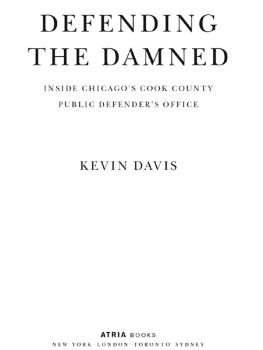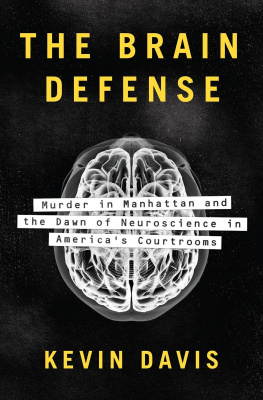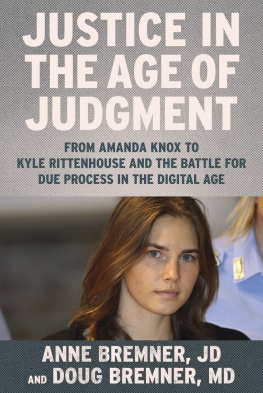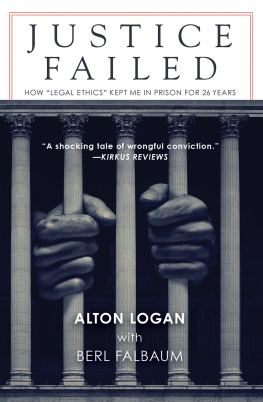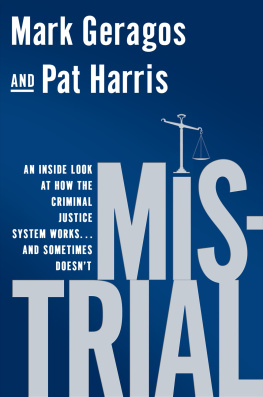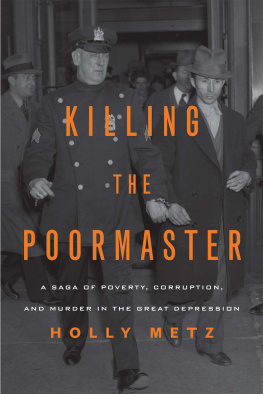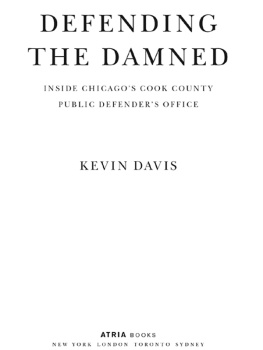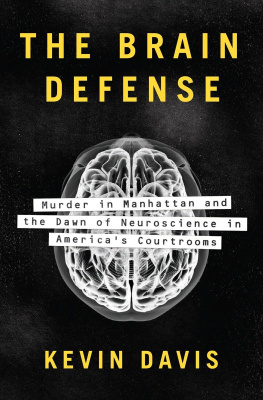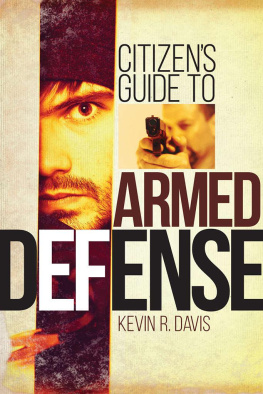All rights reserved, including the right to reproduce this book or portions thereof in any form whatsoever.
For information address Atria Books, 1230 Avenue of the Americas, New York, NY 10020.
Davis, Kevin.
Defending the damned : inside Chicagos Cook County public defenders office / Kevin Davis.
p. cm.
Includes bibliographical references and index.
1. Oliver, AloysiusTrials, litigation, etc. 2. Trials (Murder)IllinoisCook Country. 3. Defense (Criminal procedure)IllinoisCook County. I. Title.
ATRIA BOOKS is a trademark of Simon & Schuster, Inc.
To my wife, Martha. There is justice.
Authors Note
In the summer of 2002, while in the early stages of researching this book, I went to the Cook County courthouse in Chicago to watch a murder trial that left me rather shaken. A young woman got on the witness stand that morning and told a story so ghastly that it prompted people to walk out of the courtroom. I stayed to listen as the woman recounted how she and her boyfriend choked and beat her baby daughter to death while trying to stop her from crying. Then, in a matter-of-fact voice, the woman described the couples elaborate and gruesome plan to dismember and dispose of the little body with the help of kitchen appliances, a frying pan, flour batter and hot oil. Her story sounded like some kind of sick joke.
I sat there appalled and deeply disturbed, trying to grasp that this woman was telling a real story about a real little girl who was butchered like a piece of meat because she simply cried, as children do. I wondered how her public defender felt about this, how she was able to handle such a sad and grotesque case. I wondered how this lawyer and her public defender colleagues were able to represent clients accused of such horrible crimes day after day, year after year, while keeping a safe emotional distance and preserving their sanity. What motivated them to come to work in such a dark place?
The womans public defender, Marijane Placek, later told me she got cases like that all the time. It didnt bother her. She refused to let it penetrate the wall she had built around herself. This was her job. And like her colleagues in the Murder Task Force of the Cook County Public Defenders office, Placek worked with a singularity of purpose: to do the best she could for her client no matter how repulsive the crimewhether she liked her client or not.
I arrived as an outsider to Placeks world, a corner of the criminal justice system where she and her fellow public defenders on the Murder Task Force labored on behalf of some of the ugliest cases and most unlikable clients. Not all of their clients were accused of such hideous acts as dismembering their victims, but they all were charged with killing another human being, a hideous act in itself. Early on, I found that public defenders like Placek got tired when outsiders asked the same old question: How can you defend those people? Its known in the profession as the cocktail party question. To public defenders it feels more like a provocation, a statement loaded with judgment and preconception, implying that public defending is less than noble, that these lawyers must explain themselves whereas prosecutors do not. It suggests that public defenders represent already guilty clients unworthy of a vigorous defense, much less compassion.
Many public defenders have well-rehearsed answers to the cocktail party question, something along the lines that everybody deserves a defense, that its fundamental to our adversarial system of justice, that the accused have constitutional rights that must be guarded and guaranteed. These are all good answers, all noble reasons. But my intention in writing this book was to avoid the cocktail question and seek a deeper understanding of their personal and professional motivations by observing these lawyers and letting their words and actions speak for themselves.
I was fortunate to have met a public defender named Shelton Green, who was the chief of the Cook County Public Defenders Murder Task Force. His supervised a team of lawyers who specialized in handling only homicide cases. I told Green I was interested in exploring the inner workings of his office with the intention of writing a book. He said that public defenders usually didnt talk with journalists because they knew their reputation with the public was unfavorable. But he decided to open the door. People may not like us, Green said. But I hope they understand us. To help foster that understanding, Green allowed me unfettered access to his unit. If lawyers wanted to talk, they could speak freely, unrestrained and uncensored. I visited the office on and off for five years, observing, listening and asking questions.
I hadnt intended to focus this book on the Murder Task Force at first, but I found its lawyers and cases irresistibly fascinating. They were veteran public defenders who had the benefit of years of experience, knew the system well and practiced law where the stakes were highest. As I watched some of these public defenders in court I knew, as well as they did, that many of their clients committed the crimes for which they were charged. But the lawyers always fought to win, and they savored every minute of the battle. Because I grew to like the public defenders I spent time with, I sometimes rooted for them. I felt a stake in their success, and thought victories over impossible odds would make for better stories in the book. But it didnt always feel right. I thought about the victims, and the victims families, and Id start to feel guilty for wanting the lawyers to get not-guilty verdicts, unless I truly believed in the innocence of the client. I liked the lawyers, but I hated the crimes.
I felt this struggle of allegiance most profoundly during the trial of Aloysius Oliver, who was charged with murdering a Chicago Police officer named Eric Lee, and whose case became a focal point of this book. Outside of the trial, I got to see what Olivers public defenders did not. I saw the pain of the victims family and friends, just as I so often had when I was a crime reporter visiting the loved ones of murder victims. I spent time with Officer Lees widow and looked into her grief-worn eyes. I went to his parents house and sat in their living room, looked at his baby pictures and graduation photos, and watched his parents cry and thought to myself what an awful thing if the man responsible was never brought to justice. That the Lees invited me into their home knowing that I was working on a book about public defenders was an act of graciousness and trust for which I will always be grateful. The Lees understood that as much as they hated Aloysius Oliver, he deserved a defense. They respected the law and the system in which his public defenders worked.
This book is not comprehensive, nor should anyone infer that the public defenders described in these pages are representative of the profession at large or the lawyers who make up the Murder Task Force. Its a sketch drawn from a small and select group of lawyers who were kind enough to give me their time and share their stories. These are people who are rarely celebrated except among themselves. They have the guts to labor in a difficult and unpopular profession, dedicated to something higher than themselves, unafraid to speak on behalf on those people society would rather cast away. Early on, one public defender told me that anyone who chooses this work has to be fearless and unconcerned whether people like them. Its not a job for those seeking approval. Its a job for those willing to rattle cages, make enemies and raise hell. By raising hell, these lawyers honor the law.

